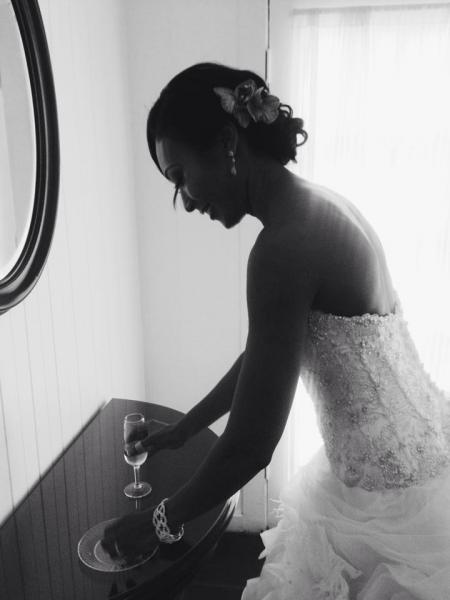Would You Change Your Name?

In 2009, Indiana University scholars at the Center for Survey Research found that 70 percent of female respondents wanted to take their husbands' names upon marriage and 50 percent thought it should be "legally required" for women to change their last names.
I set off to specifically research this topic, after a commentator on Thought Catalog assumed I was married after reading one of my articles. Although the article focused on questions surrounding racial bias in college hook-up culture, there was a full-on discussion about my hyphenated last name, and how people "should never trust chicks with two last names."
I couldn't help but respond, just to clarify. I expressed how I am single, and that my last name is hyphenated, only because my mother wanted to keep her last name for professional reasons.
“Why is what she does for a living important? It's a weird femmy move chicks do with the hyphen name. Some how they think it empowers them," was the response.
These doubts expressed by a cyber stranger were first questioned in the mid-19th century by women’s suffragist Lucy Stone. By 1921, Stone had gathered a group of women who were devoted to maintaining their maiden names, which became known as the Lucy Stone League in 1921.
However, almost all women continued to take their husbands' names until the 1970s and 80s, when the development of new feminist movements challenged the trend. Hyphenating one’s name served as a compromise, instead of just agreeing to take a man’s name.
Some women who made this choice felt it served as a compromise, however much of American society labeled women with hyphenated last names "radical feminists." Had using the hypen become a conscious choice to define womanhood outside of the American, patriarchal lens?
In the study, The Bride is Keeping her Name: A 35-Year Retrospective Analysis of Trends and Correlates, sociologists at Indiana University also found that only eight percent of women kept their maiden names in 2009 - a significant decrease compared to the 23 percent of women who had kept their names in the 90s.

It is clear that name-changing can disempower women because of its Victorian-age remnants and implications surrounding "a women's place" in marriage.
These issues all come down to the notion of challenging received opinion. An individual may consciously accept ideas from family members and friends, or subconsciously embody popular social and political thought from his or her environment.
For centuries, women have learned to accept this tradition of viewing relationships through a patriarchal lens, so much that the roots of traditions like "taking a husband's name," and exchanging ownership of a bride from the father to the groom still exist.
Today, there are countless symbolic acts to represent marriage across the globe, most of which come with the expectation that women should willingly let go of their family names. Names that define women's individual histories, familial legacies, and most importantly, how specific societies will view and treat them, for the majority of their lives.
When young women decide to get married, we must learn how to maintain a sense of individual identity outside of our partnerships, while remaining committed to our vows.
To some, the decision to keep a name may seem unimportant, but to me, preserving my thirteen-letter, hyphenated last name, serves as a way to establish a sense of self, and claim ownership over that self, at the beginning of a lifelong journey.
Reach Contributor Maya Richard-Craven here. Photos by Rebecca Orlandini here.



